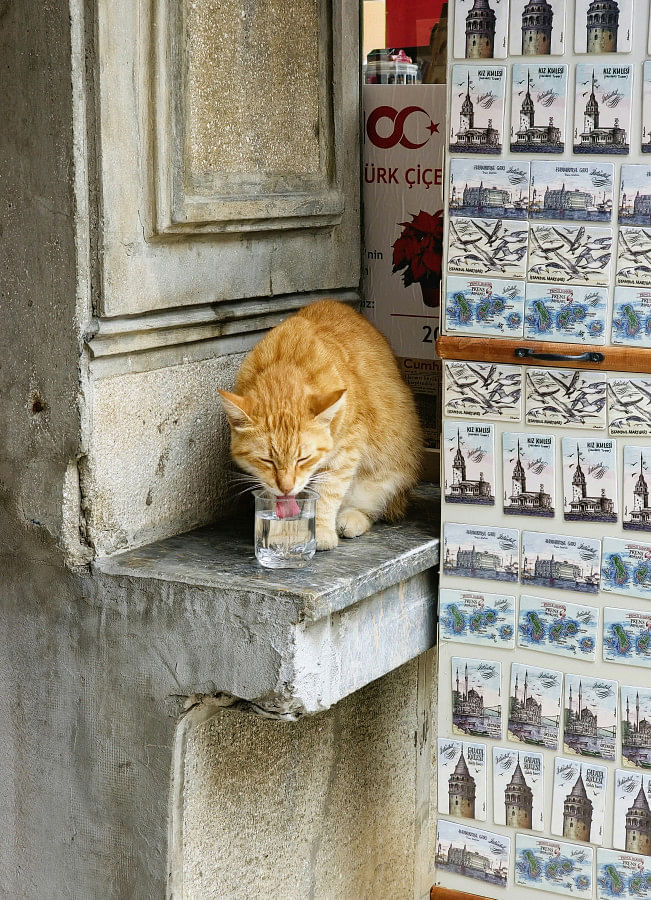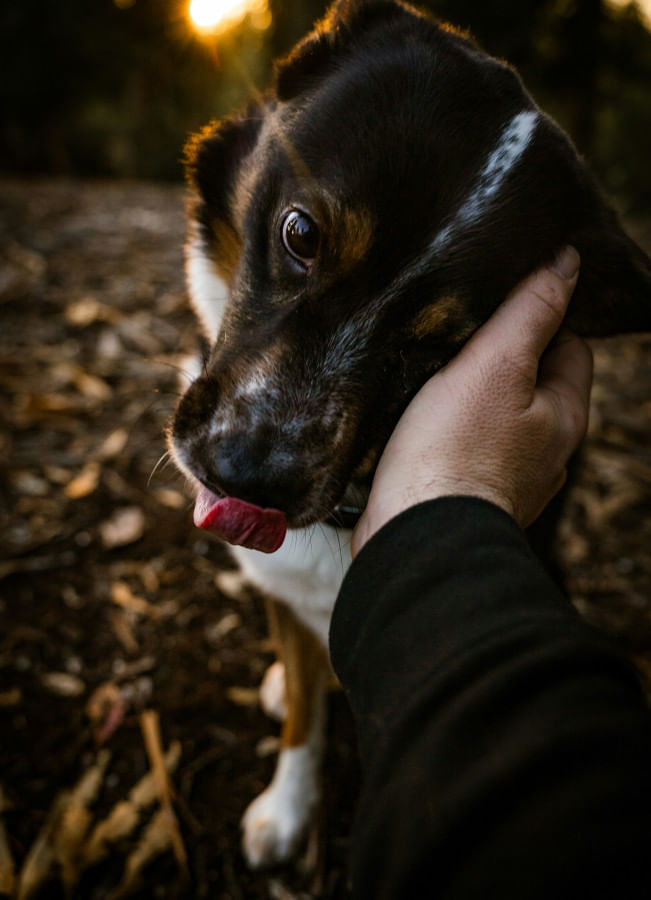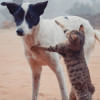When the mercury rises, we humans can pour ourselves a glass of cold water or retreat indoors under the shade of a ceiling fan. But for the animals around us — street dogs, cats, and birds — the summer heat is an invisible predator. It drains their energy, dehydrates their bodies, and in many heartbreaking cases, takes their lives. In Bangladesh, where temperatures can soar well above 40 degrees Celsius in peak summer, small acts of kindness can mean the difference between life and death for these voiceless beings.
Let's not wait for a viral video to move us. Let's act now — with empathy, awareness, and above all, kindness.

Leave water bowls outside
One of the simplest and most effective ways to help is by keeping shallow bowls of clean water outside your home, office, or shop. Terracotta or clay bowls are best because they stay cooler than plastic or metal. Refill them daily, ideally twice a day. Place them in a shady spot where birds, dogs, and cats can safely access them.
In Dhaka's densely populated neighbourhoods, even a small veranda or windowsill can become a lifeline for a thirsty bird.
Offer shade and shelter
Animals don't always have access to trees or cool spaces. Street dogs often curl up on blazing pavements or under parked vehicles, both dangerously hot. If you can, place a jute mat, an old sack, or cardboard in a shaded area for them to lie on. A cardboard box with holes can also become a mini shelter for a kitten or a bird.
If you have a balcony, rooftop, or garden, create shaded corners with cloth or tin sheets. Planting trees, of course, is the long-term solution, but providing immediate shade saves lives today.
Feed light, moisture-rich food
For those who feed street animals, remember that summer demands a diet shift. Heavy or spicy food can dehydrate animals. Instead, opt for simple rice mixed with affordable scraps like chicken feet for dogs, which can be a good source of protein as well. Cats can benefit from fish or meat with a bit of rice and water. Keep the portions light and feed in the early morning or evening to avoid attracting flies and heat spoilage.
Rescue and rehab, if you can
Heatstroke in animals can be fatal, but is often preventable. Signs include excessive panting, drooling, vomiting, rapid heartbeat, or collapse. If you find an animal suffering from heatstroke, move them to a cool, shaded area immediately. Pour room-temperature (not icy) water on their paws and body. Offer water in small sips. Then call for help.
Several organisations in Bangladesh offer animal rescue services. Try calling PAW Foundation, Obhoyaronno, Care for Paws, or your nearest vet. Even if you can't take the animal in, helping it reach safety is a noble act.
Birds, too, benefit from soaked grains or fresh fruits like papaya and banana. Avoid feeding bread or biscuits — they're often harmful and not hydrating.

Be kind on the road
In summer, animals often seek refuge under parked cars for shade. Before you start your vehicle or move your bike, please give it a tap or honk to wake up any animal resting beneath. It's a small habit, but it can prevent tragic accidents.
Also, try not to scare away animals from shady spots or water sources. In this weather, survival trumps cleanliness. And most importantly, teach children empathy! Encourage them to put out water, pet animals gently, and learn about their needs. Growing up with compassion builds not only kind individuals but also a more humane society.
Despite countless articles, campaigns, and social media posts, heartbreaking stories of animal neglect and abuse still surface far too often. It's easy to feel disheartened, thinking one person's efforts can't possibly change the narrative. But kindness is contagious, and when we act together, as a community, our compassion becomes a force that can shift attitudes. So, this summer, let's start small but strong and give the animals around us a fighting chance under the burning sun.








Comments